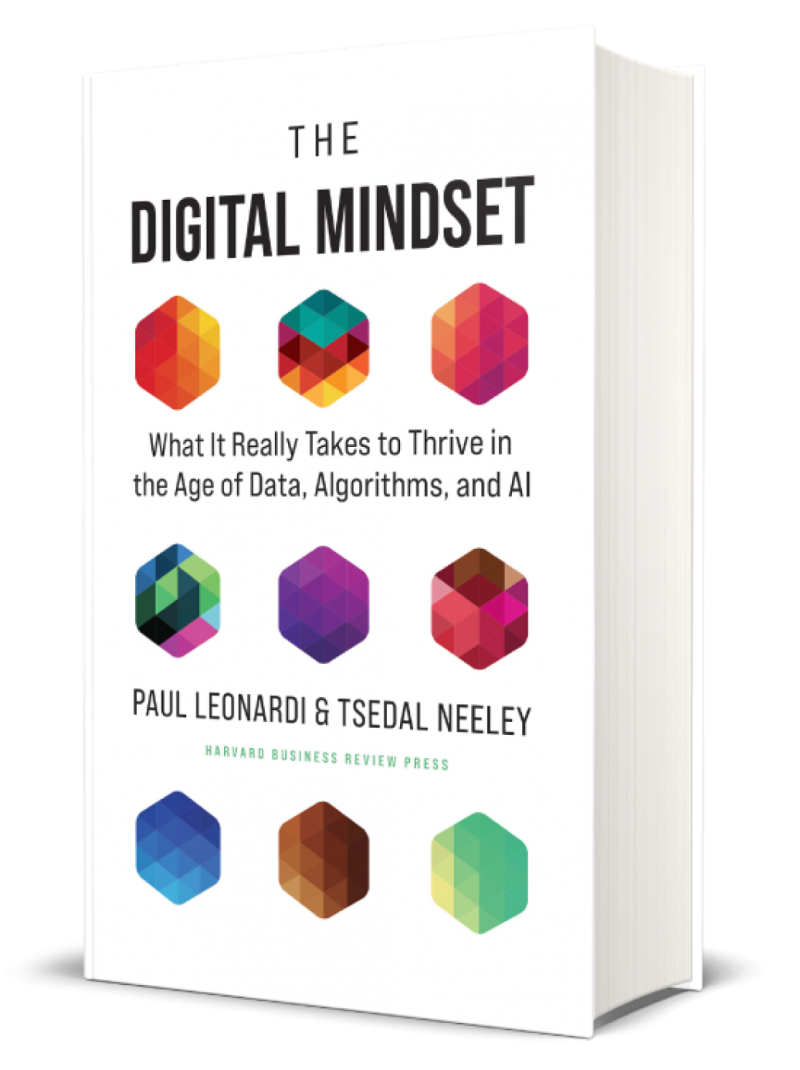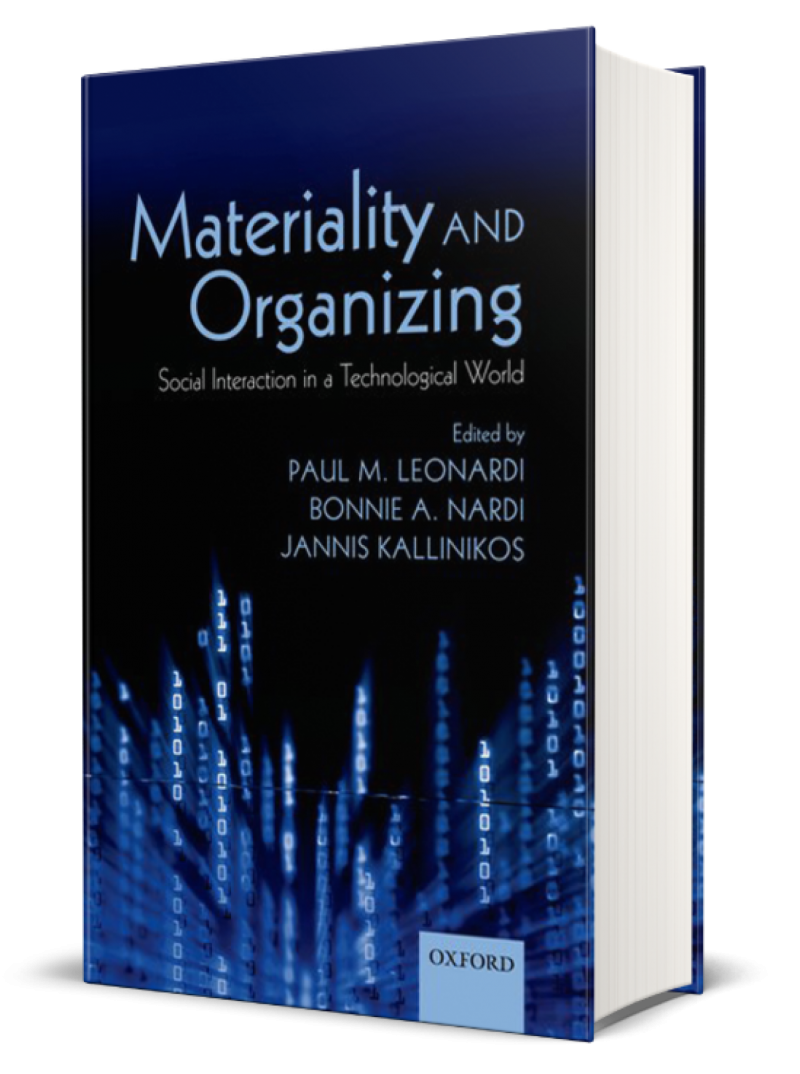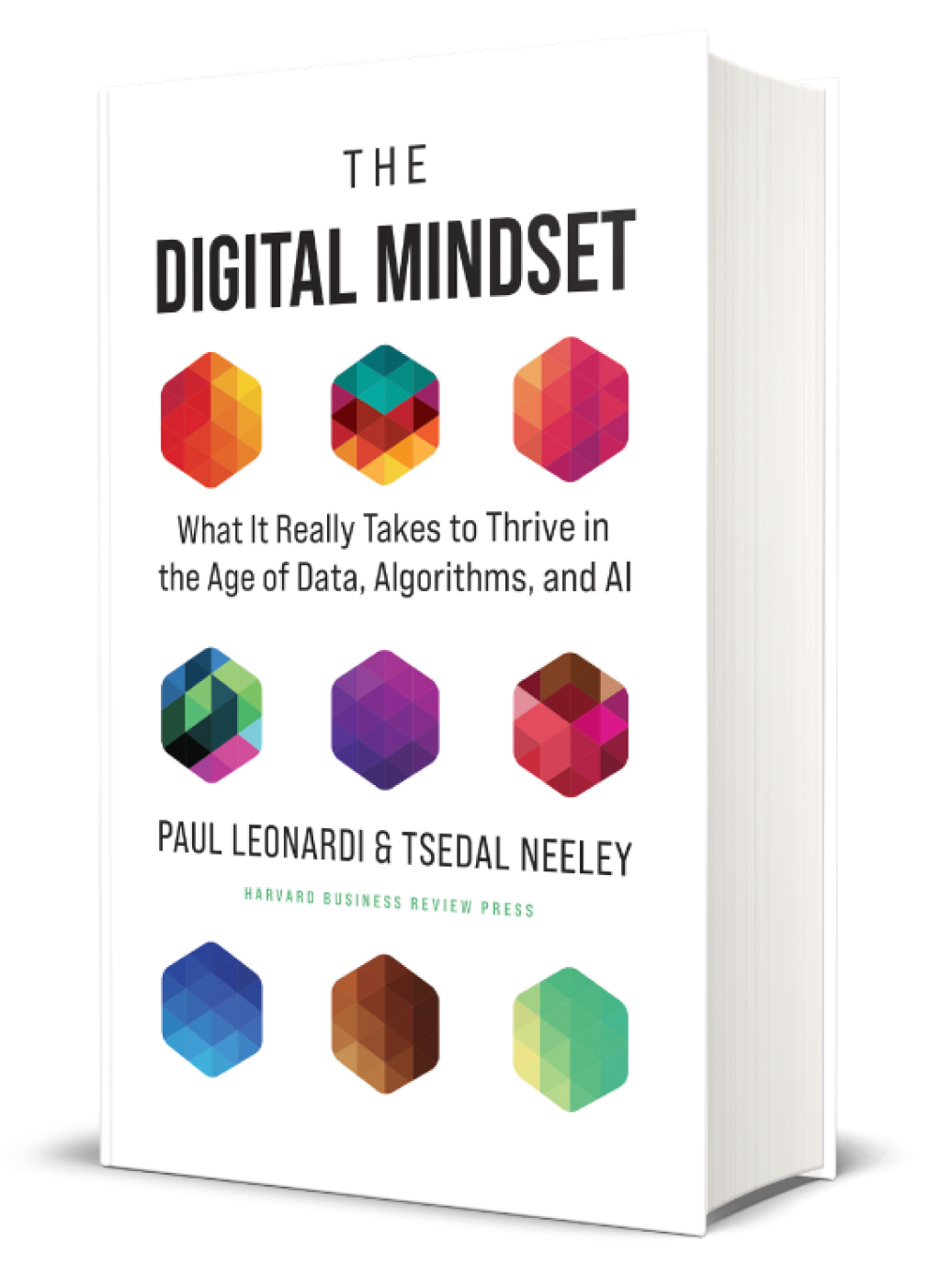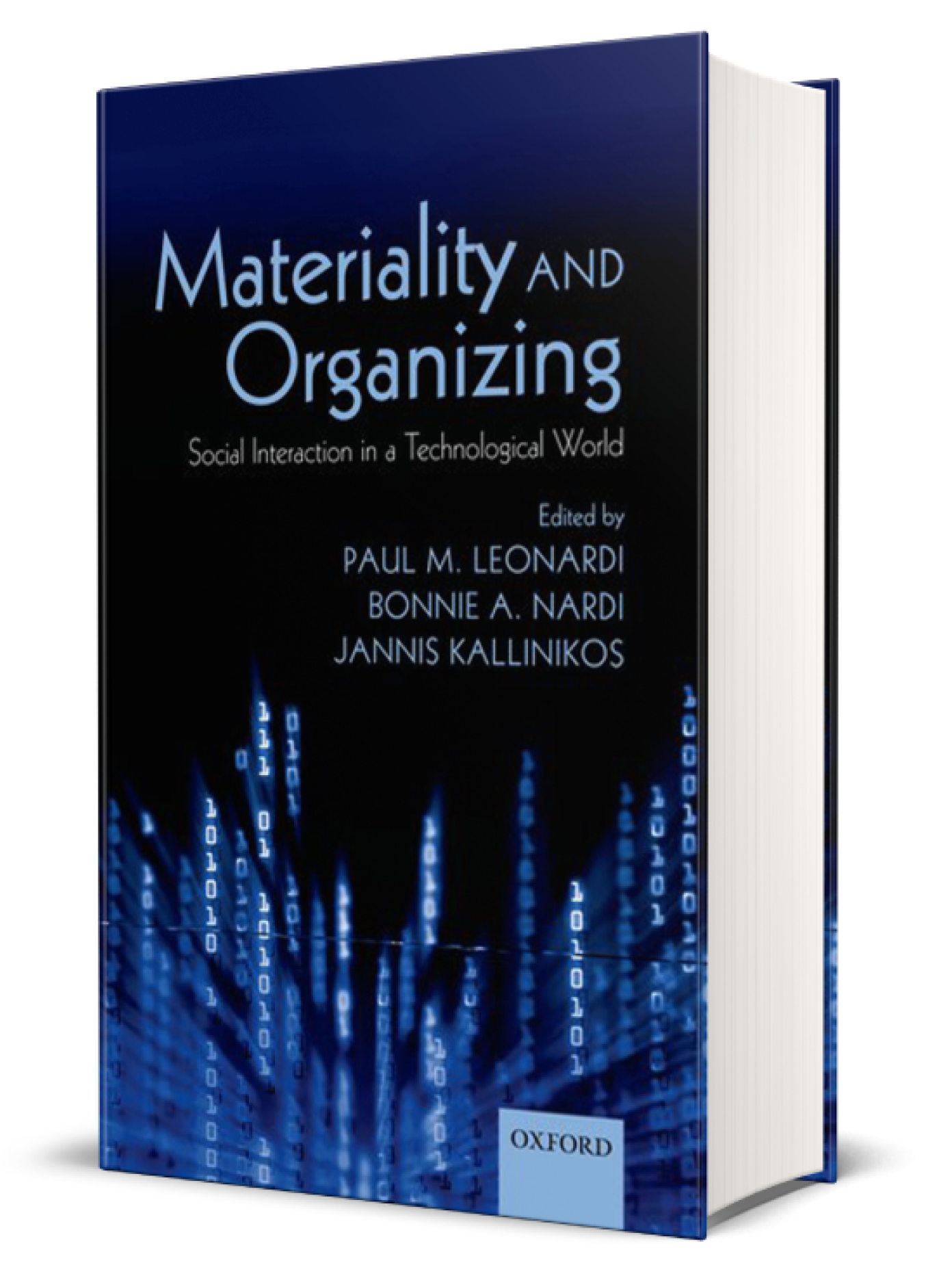co-authored with Diane E. Bailey
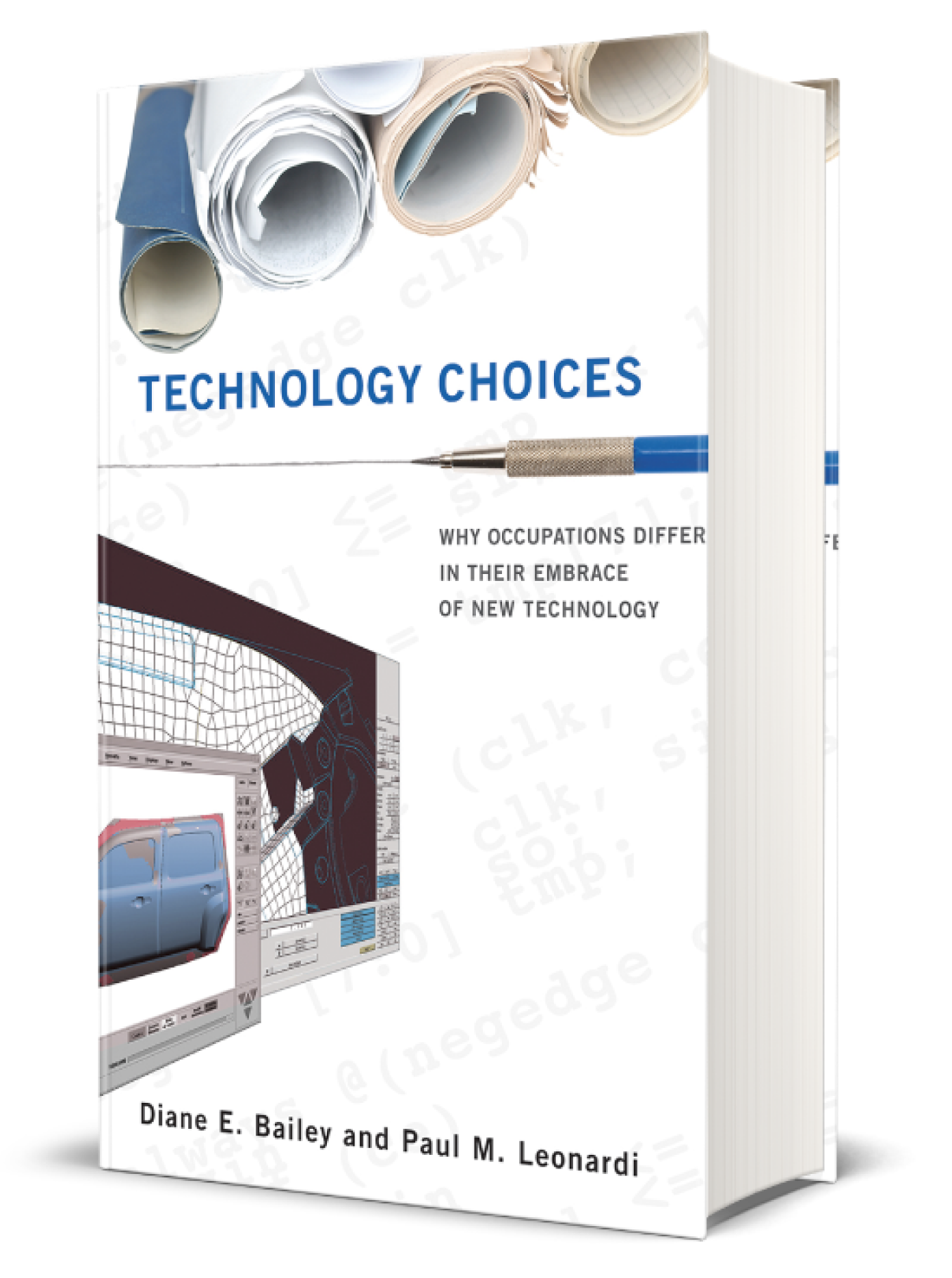
Why do people who perform largely the same type of work make different technology choices in the workplace? An automotive design engineer working in India, for example, finds advanced information and communication technologies essential, allowing him to work with far-flung colleagues; a structural engineer in California relies more on paper-based technologies for her everyday work; and a software engineer in Silicon Valley operates on multiple digital levels simultaneously all day, continuing after hours on a company-supplied home computer and network connection. In Technology Choices, Diane Bailey and Paul Leonardi argue that occupational factors―rather than personal preference or purely technological concerns―strongly shape workers’ technology choices.
Drawing on extensive field work―a decade’s worth of observations and interviews in seven engineering firms in eight countries―Bailey and Leonardi challenge the traditional views of technology choices: technological determinism and social constructivism. Their innovative occupational perspective allows them to explore how external forces shape ideas, beliefs, and norms in ways that steer individuals to particular technology choices―albeit in somewhat predictable and generalizable ways. They examine three relationships at the heart of technology choices: human to technology, technology to technology, and human to human. An occupational perspective, they argue, helps us not only to understand past technology choices, but also to predict future ones.
Praise
Making visible occupational differences within engineering is by itself a huge contribution. Bailey and Leonardi venture far further, developing with remarkable discipline, care, and insight an occupational theory of technology choice that applies to any domain of work. A must-read for anyone with a stake in how new technologies affect the workplace!
Bailey and Leonardi provide a detailed scholarly exploration of the forces that shape engineers’ interactions with technology in different occupational fields. Their occupational perspective neatly resolves longstanding debates about technical versus social determinants of work practices. Grounded in years of rigorous qualitative field research, Technology Choices is required reading for academics interested in technology, work, product development, and innovation
In a compelling ethnography, Bailey and Leonardi take us into the daily working lives of design engineers in India and the U.S. and show us why differences in institutions and occupations make some jobs offshorable and others not. They open the black box of global software engineering, making a seemingly geeky world transparent and accessible. A must-read for students of the sociology of work, organizations, technology, and management.
Chalk one up for people controlling technology rather than the reverse! Bailey and Leonardi’s deep analysis shows that occupational norms shape how the same computer technologies can be used in different ways to design products and get work done productively. Let’s hope their findings inspire other professionals and occupational gatekeepers to put technologies to work in service of economic, social, and environmental goals important to us all.
